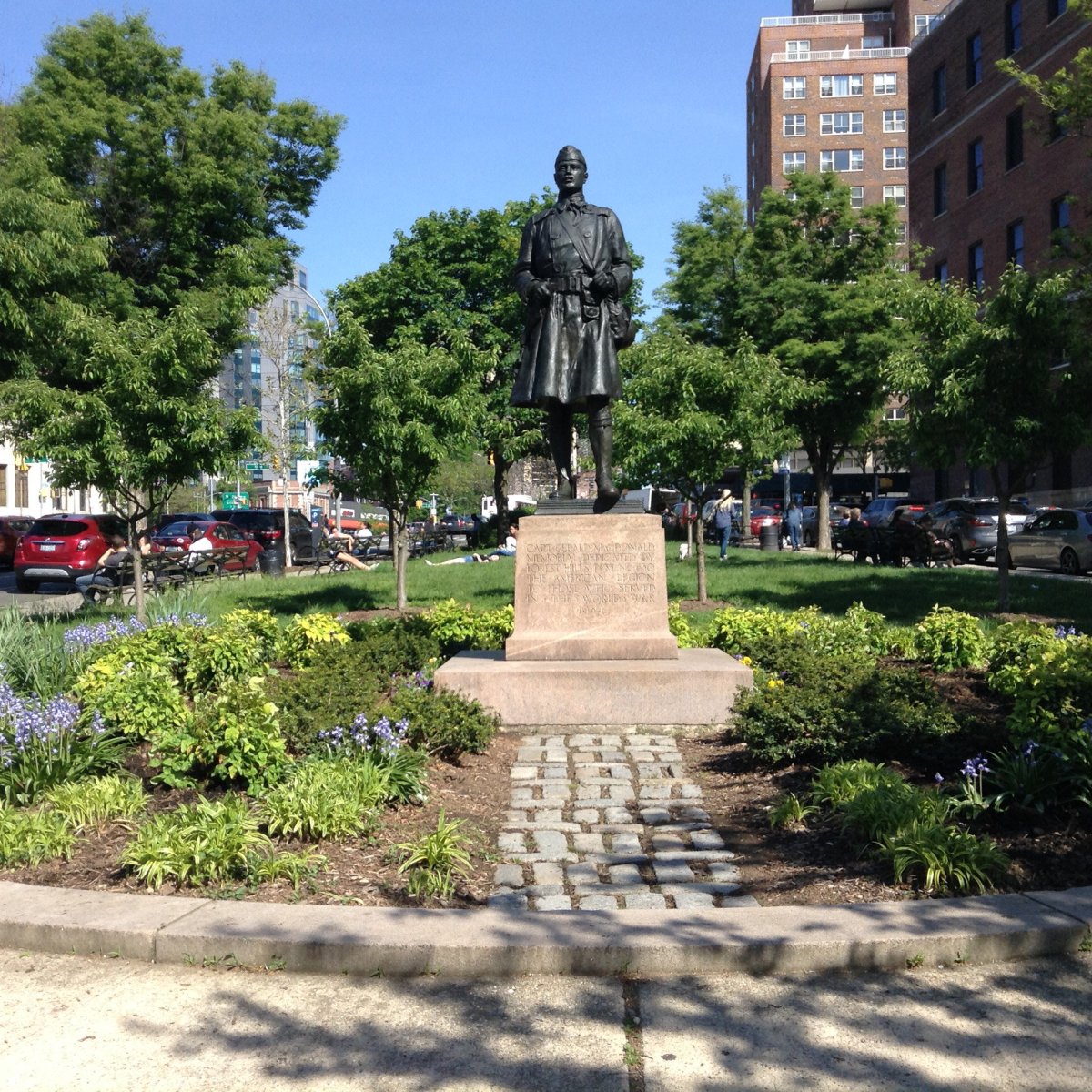Curbside food and yard waste collection will return to Forest Hills on Sunday, May 16, thanks to the Forest Hills Green Team (FHGT), the Queens Botanical Garden and Friends of MacDonald Park.
The new MacDonald Park food waste drop-off site, located at 87-20 Queens Blvd., comes more than a year after Mayor Bill de Blasio slashed $28 million from the fiscal year 2021 budget, suspending citywide food waste collection and composting to fund emergency responses to the COVID-19 pandemic.
Recently, the mayor announced the return of the curbside service for communities where it was offered prior to the pandemic, but Forest Hills was not among them, according to FHGT. There was only a weekly food waste drop-off site at the MacDonald Park greenmarket on Sundays, and the volunteer-run Compost Collective on Yellowstone Boulevard and Kessel Street on Saturdays.
“There are a couple of sites where people can drop off weekly waste, but it’s just not enough,” said Mark Laster, chair of FHGT, a volunteer initiative launched in 2018 that has revitalized and helped start gardens at Metropolitan Expeditionary Learning School and Forest Hills High School. “So, we decided to partner with the Queens Botanical Gardens and Friends of MacDonald Park to provide another composting location and opportunity.”
Residents will be able to come by and drop off their food scraps to FHGT volunteers from 10 a.m. to 1 p.m. at the site, which is adjacent to the Greenmarket. Queens Botanical Garden will pick up the containers and compost the food waste at its main facility. The finished compost will be returned to the community for distribution at MacDonald Park.
Ever since the service was suspended, residents were asked to discard food scraps and yard waste with their trash, which has resulted in a tremendous loss of momentum for these vital programs, Dan Miner, co-chair of FHGT, said in an op-ed.
“Community outreach will have to be redoubled before their reintroduction. We urge the mayor and City Council to restore funding to composting and recycling programs as soon as possible, and to invest in community education about the many benefits of composting,” Miner said.
According to Miner, composting is critical to saving the environment.
“When food waste isn’t separated from regular garbage, it’s often burned in incinerators or buried in landfills, where it produces the greenhouse gas methane, which is responsible for global warming,” Miner said.
According to FHGT, Methane is up to 34 times more powerful than carbon dioxide. Municipal solid waste landfills are the third largest source of human related methane emissions in the U.S., and produced about 15 percent of U.S. emissions in 2018.
“Landfills around the country are filling up, and becoming more costly for cities to use for their waste,” FHGT said in a op-ed. “To meet the city’s goal of sending zero waste to landfills by 2030, we will need to prioritize composting our organic waste.”
Queens Botanical Garden is seeking other organizations willing to host food waste drop-off locations in their community, according to FHGT, encouraging other local groups to partner in the effort towards a sustainable future.
Members of the Forest Hills Green Team, have also developed a community beautification project at the LIRR overpass on Yellowstone Boulevard. FHGT has organized events and conducted advocacy about environmental issues and climate change response.
FHGT members Evan Boccardi and Sheila Shapiro will coordinate the site. To volunteer with FHGT to assist in the compost project, contact fhgtinc@gmail.com.



































